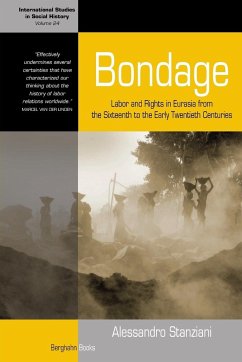"The strength of Stanziani's work is his lively engagement with numerous scholars over the meaning and significance of labor around the world. Whether or not one agrees or disagrees with the many arguments he posits, his ideas deserve attention, and are sure to inspire further research and discussion... Highly recommended." · Choice "Stanziani has produced an intellectually rich and invigorating study. The problems identified are not necessarily new, but they are enduring, and for students of Russia, they have to my knowledge never before been so thoroughly integrated into the framework of world history... Stanziani's breadth of vision is impressive and his arguments invariably challenge. Every student of Russian history and international politics should read his work." · Slavic Review "Alessandro Stanziani's book fills a still significant gap with regard to the task... [of doing] away with the view that contrasts 'free labor in the West' with 'serf labor in Russia and Eastern Europe'. This leads Stanziani to the conclusion that labour institutions were more similar between the West and Russia than previously assumed. Free and unfree labor are essentially historical notions and the problem of those historical studies that advocate a contrast between Western and Eastern Europe in this respect essentially rely on an ahistorical conception." · Cahiers du monde russe For the first time, this book provides the global history of labor in Central Eurasia, Russia, Europe, and the Indian Ocean between the sixteenth and the twentieth centuries. It contests common views on free and unfree labor, and compares the latter to many Western countries where wage conditions resembled those of domestic servants. This gave rise to extreme forms of dependency in the colonies, not only under slavery, but also afterwards in form of indentured labor in the Indian Ocean and obligatory labor in Africa. Stanziani shows that unfree labor and forms of economic coercion were perfectly compatible with market development and capitalism, proven by the consistent economic growth that took place all over Eurasia between the seventeenth and the nineteenth centuries. This growth was labor intensive: commercial expansion, transformations in agriculture, and the first industrial revolution required more labor, not less. Finally, Stanziani demonstrates that this world did not collapse after the French Revolution or the British industrial revolution, as is commonly assumed, but instead between 1870 and 1914, with the second industrial revolution and the rise of the welfare state.

